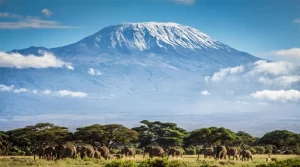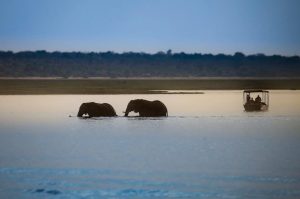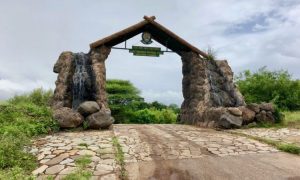Examining the Tragic Deaths on Mount Kilimanjaro
Mount Kilimanjaro, the highest peak in Africa, is a popular destination for avid trekkers and adventure seekers. However, this majestic mountain has claimed the lives of many climbers over the years. The recent fatalities on Mount Kilimanjaro have raised concerns about the safety of trekking on this iconic mountain.
One of the most recent tragedies occurred during a tour organized by Sunset Africa Safari, a reputable tour operator that offers guided treks up Mount Kilimanjaro. The group of climbers, led by experienced guides, encountered adverse weather conditions and altitude sickness, resulting in several fatalities.
The deaths on Mount Kilimanjaro serve as a grim reminder of the dangers associated with high-altitude trekking. Despite the best efforts of experienced guides and support staff, accidents and medical emergencies can still occur on the mountain.
Analyzing Factors Contributing to Fatalities on the Mountain
Several factors can contribute to fatalities on Mount Kilimanjaro, including altitude sickness, adverse weather conditions, physical exhaustion, and lack of proper preparation. Altitude sickness, also known as acute mountain sickness, is a common problem faced by climbers as they ascend to higher altitudes. Symptoms of altitude sickness can range from mild headaches and nausea to more severe conditions such as high altitude pulmonary edema (HAPE) and high altitude cerebral edema (HACE), both of which can be fatal if not treated promptly.
Adverse weather conditions, such as sudden storms and extreme cold, can also pose a serious threat to climbers on Mount Kilimanjaro. The mountain’s unpredictable weather patterns make it essential for climbers to be prepared for all types of conditions and to be able to make quick decisions in the event of a weather-related emergency.
Physical exhaustion is another factor that can contribute to fatalities on Mount Kilimanjaro. The strenuous trek up the mountain requires climbers to be in good physical condition and to acclimatize properly to the altitude. Failure to do so can result in fatigue, dehydration, and ultimately, serious medical complications.
Lack of proper preparation is perhaps the most significant factor contributing to fatalities on Mount Kilimanjaro. Climbers must undergo thorough physical examinations, obtain the necessary permits, and ensure they have the proper equipment and supplies for the trek. Additionally, climbers should be aware of the risks associated with high-altitude trekking and should be prepared to make informed decisions about their safety and well-being.
In conclusion, the recent fatalities on Mount Kilimanjaro serve as a stark reminder of the dangers associated with high-altitude trekking. Climbers must be prepared for the challenges they may face on the mountain and should take all necessary precautions to ensure their safety. For those interested in booking a trek up Mount Kilimanjaro with Sunset Africa Safari, please contact info@sunsetafricasafari.com for booking inquiries.



